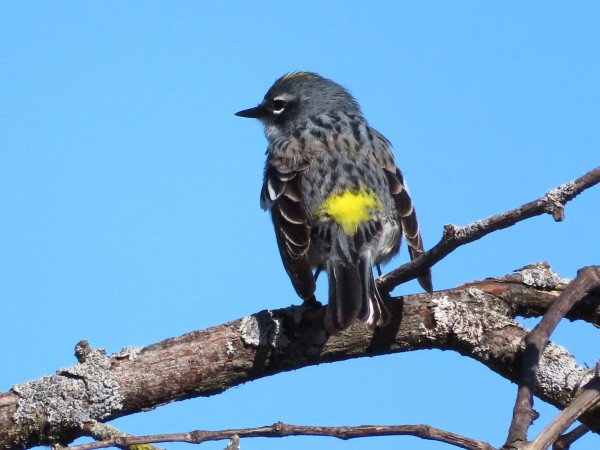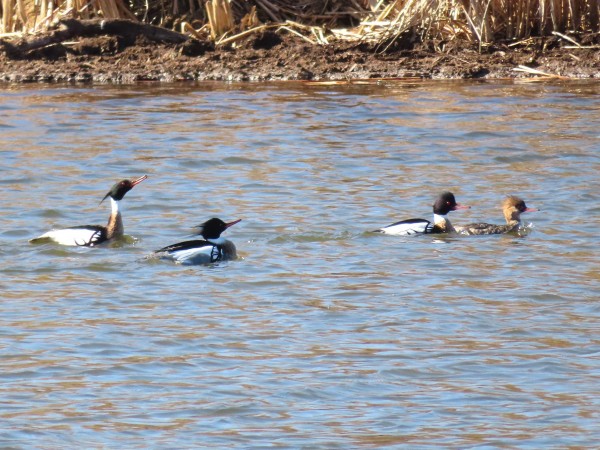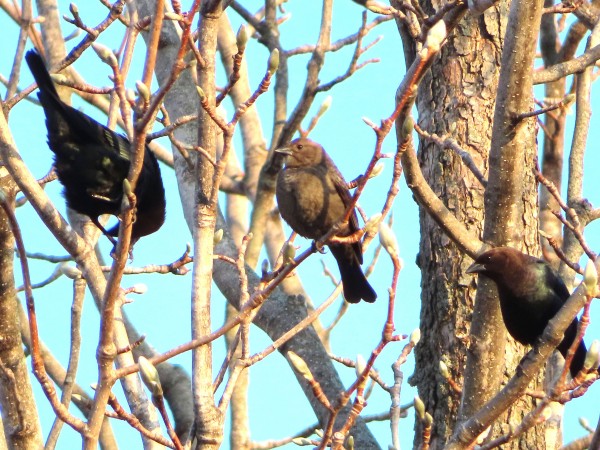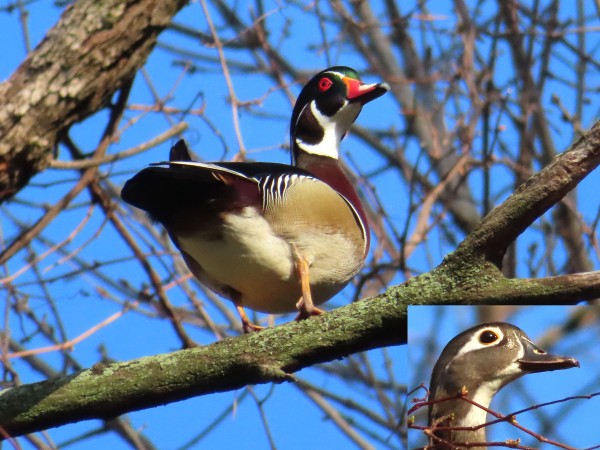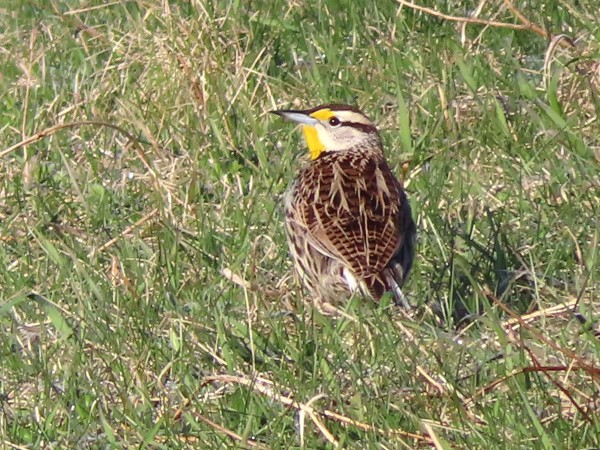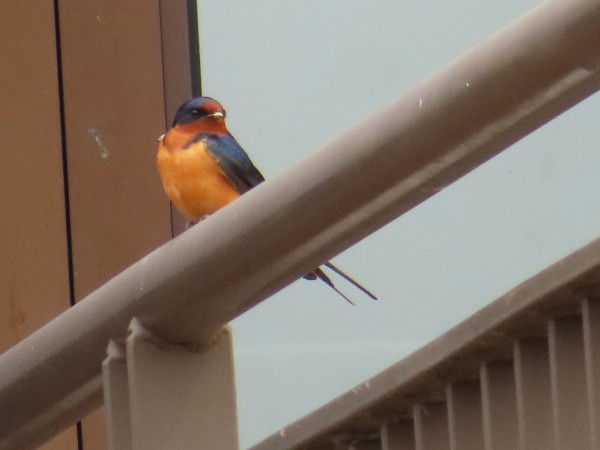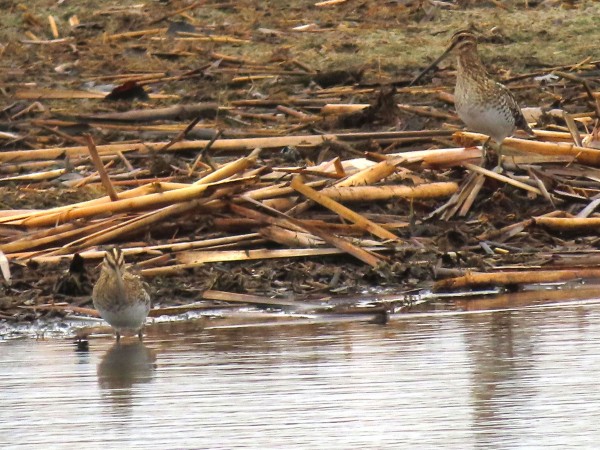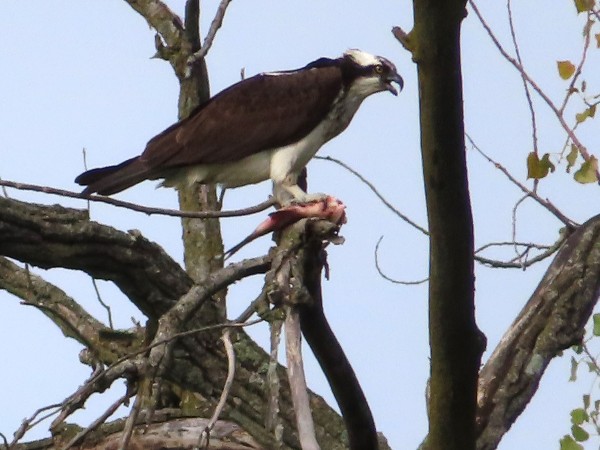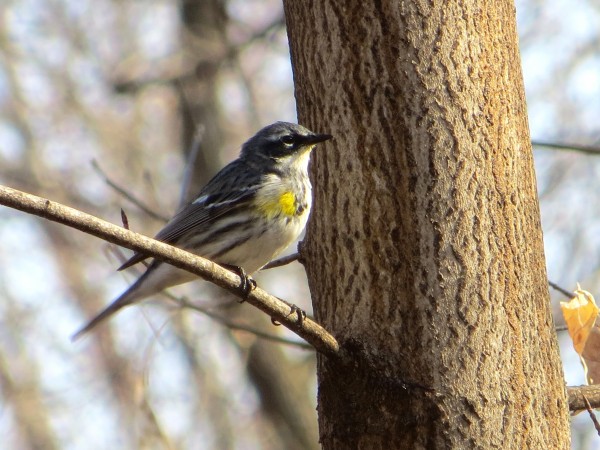Chuck's Birding Report #108
05 April - 11 April 2022
Dear fellow flock of birders,
New birds continue to arrive.
A pair of Eastern Bluebirds have claimed nest box #15 for themselves. This nest box is the one just south of the Visitor Center parking lot. Each day when I visit the Arb it seems that the Tree Swallows, who have also arrived recently, are trying to take over the bluebird’s nest box. So far the Eastern Bluebirds have fended the Tree Swallows off. I told the Tree Swallows to find another nest box. There are 14 other nest boxes in the Arb.
Last Thursday when I went to the Spring Trail Pond (aka the Duck Pond) I saw my first Yellow-rumped Warblers. They were feeding on the rocks and overhanging bushes along the edge of the pond. Yellow-rumped Warblers are usually the first warblers to arrive in the spring. I only saw two for sure but I think there were 2 or 3 more in the vicinity. They were wearing their bright colored spring plumage. A photo of one is included.
The Wild Turkey males (toms) are really displaying their feathers right now in an attempt to attract the females. Their tail feathers are all fanned out, their wing feathers are dragging on the ground and their body feathers are all puffed up. Their heads are brightly colored red, white and blue. Very patriotic! They’ve taken over the roads and do not want to move to let the cars pass by. They have one thing in mind and can’t be dissuaded from their springtime task.
I drove by Lake Wingra the other day and noticed in several locations on the lake that there were numerous Red-breasted Mergansers. Taken all together there were probably 50 of them. The males were bobbing their heads and pointing their heads toward the sky. Again this is their method of courtship behavior to try to impress the females. Included is a photo of four Red-breasted Mergansers.
I’ve seen many Golden-crowned Kinglets recently. On Sunday I birded four parts of the Arboretum and in each place I saw 2-3 Golden-crowned Kinglets. I think I saw 10 that day. They move very quickly and are difficult to photograph. I have not seen any Ruby-crowned Kinglets yet but they should be appearing soon.
The Brown-headed Cowbirds have been increasing in numbers recently. The males have brown heads and the rest of their bodies are black. The females on the other hand are all gray. The courtship behavior of the males is characterized by spreading their wings and bowing. I’ve seen groups of males demonstrating this behavior to each other. I assume they are just practicing. It often looks like they almost fall off their perches. Included is a photo of one male bowing to a female while another male looks on.
I’ve been seeing a lot of ducks flying around, especially Mallards and Wood Ducks. The surprising activity of Wood Ducks is landing in trees. They are the only duck species I know that does this. That’s because they nest in tree cavities so that’s what they are looking for. Many nest boxes are set up for Wood Ducks on ponds so they don’t need tree cavities. Included is a photo of a male perched in a tree with the head of a female pasted in the lower left corner. She was in the tree too but too far away to take a good photo.
Today when I birded in the Arboretum I hit the jackpot! I always hope that I can find some good birds to put in the bird report but often it doesn’t happen. Today I got lucky. I found three first of year birds. The first one I saw was an Eastern Meadowlark. We don’t often see them in the Arb. When we do see them they are just passing through. I’m not sure why they don’t stay. Maybe it’s just too noisy with the beltline so close. This one flew from Curtis Prairie north to the grassy area immediately south of the parking lot. It settled in with some robins to find something to eat in the grass. After a couple minutes it flew south and that was the last I saw of it. A photo of an Eastern Meadowlark is included.
The next new bird I saw was a Barn Swallow. It was flying around with the Tree Swallows so at first I thought it was just another Tree Swallow. But at one point it banked so I could see the top of the tail. It was a forked tail with the two feathers on each side of the tail much longer than the ones in the middle of the tail. In addition there were a row of white spots on the central feathers. These are identifying characteristics of Barn Swallows. Soon many more will arrive and nest under the eaves of the Visitor Center. Included is a photo of a Barn Swallow. Note how different the colors of the underside are from the white of the Tree Swallow.
Next I walked out onto the main path heading south on Curtis Prairie and saw two Wilson’s Snipes fly off to the north. They were strong fliers, had long beaks and made the sound of a flying Wilson’s Snipes. Included is a photo of two Wilson’s Snipes near a pond.
Another bird that I saw first yesterday at Gardner Marsh and then again today was an Osprey. It was carrying a fish in its talons. What is so interesting is that the Osprey orients the fish head first so there is little drag while carrying the fish. It landed in a big snag near the end of east Curtis Prairie and began eating the fish. A photo is included.
That’s the Arboretum bird report for the past week.
I wish all of you good health and good spring birding too,
Chuck

